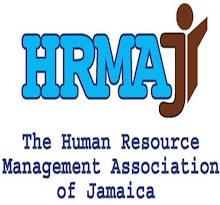As a consultant, I am often called in to solve a simple
problem that most Human Resource professionals could solve for their companies.
It's one I shared in a recent Gleaner column entitled
"Why Consultants Need to See Your Watch before They Tell You the
Time." In the article, I shared an
assumption I make on every consulting project, that someone already had
determined the answer to the prevailing problem. My value-added is to bring
problem-solvers and decision makers together in a unique way that solves the
issue.
This may seem simple, but often there are political, social
and language barriers that stand in the way. While I make a living removing
them, this task can also be performed by HR professionals.
But here's the problem. It's the rare HR professional who
takes responsibility for crafting the transparent kind of environment that
avoids the need for my services. Too often, HR takes a back seat, watching the
culture evolve in amazement, if not befuddlement.
Take the example of the greatest work-related culture change
in recent times. It's not empowerment, transparency, or leadership... it's the
advent of email. In this case, HR was tucked away on the sidelines, the last to
learn the difference between "Reply" and "Reply to All."
The fact is, many existing problems in your company already
have a technological solution. It's not surprising that the best way to create
a transparent environment also requires new technology. Here are some ideas for
how a connected culture - so taken for granted to millennials - can be
incorporated into your company.
1. Set up transparent online networks
HR professionals are often at the forefront of hosting
traditional all-employee meetings. However, they also need to become experts at
doing the same thing online, via social networks. Programs like Facebook clone
Yammer make this an eventual certainty and the only question is whether HR will
provide leadership as it unfolds ... or mere viewership.
2. Create space for open ideas
Giant Q&A networks like Quora and StackExchange
allow for in-depth exploration of solutions to pressing problems. They are
brilliant platforms that, in the future, will be echoed in-house by similar
apps. But there's no need to wait - the capability to have these quality conversations
already exists in your company. Just ask someone in IT.
3. Help
problem-solvers meet
For difficult corporate problems, answers are too complex
for any single person to solve. Often, several individuals have a piece of the
overall puzzle and need to be brought together in the right way. HR can create
these meetups using a combination of both online and offline solutions. Add in
a dash of blended learning to kick-start the process and an opportunity for
purposeful experiential training can result.
HR is uniquely positioned to tackle tough problems by virtue
of its soft skills but they aren't enough in today's tech-driven environment.
The HR manager who embraces technology and pushes it into the corporation can
have a profound impact connecting people, leading the way to solutions rather
than just following.
Francis Wade is the founder of CaribHRForum, an author and
management consultant.


